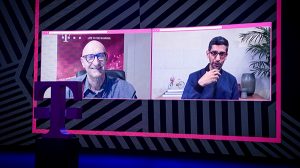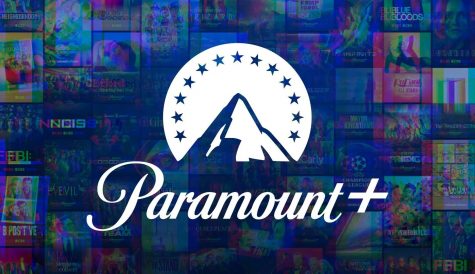
After more than 40 years of operation, DTVE is closing its doors and our website will no longer be updated daily. Thank you for all of your support.
Deutsche Telekom and Google expand partnership in TV, cloud and messaging
Deutsche Telekom has unveiled an expanded partnership with Google spanning enhanced mobile messaging for businesses, a new ‘sovereign cloud’ for Germany and its new Android TV-powered Magenta TV One set-top.
The Magenta TV One, which has been available in Germany since last month, is to be be expanded to Telekom’s international markets, the company said.
The Magenta TV One offers access to mainstream TV channels alongside a raft of streaming services and media libraries via the Google Play Store.
Services are integrated into the Magenta TV main menu.
The box can be connected to any internet connection. Consumers can also use the device to cast photos, videos and music from smart devices to theTV with the box’s built-in Chromecast functionality.
The box is the second Android TV device launched by Telekom in Germany, following the launch of the Magenta TV stick in 2020.
The box does not currently offer voice control functionality and Sky’s channels are not available on it. Ultra HD services and a number of regional TV channels are also not available.
Google and Deutsche Telekom have meanwhile forged a partnership to build a co-innovation centre in Munich as part of their plan to launch a ‘sovereign cloud form Germany”.
T-Systems will manage a set of controls and measures, including encryption and identity management. In addition, T-Systems will exercise a control function over relevant parts of the German Google Cloud infrastructure.
“Deutsche Telekom is a longstanding and important partner for us, going back to the launch of the G1, the first smartphone powered by Android, in 2008,” said Sundar Pichai, CEO of Google and Alphabet.
“Today’s announcements will expand the range of helpful and trusted products and services that we can provide to businesses and consumers across business messaging, cloud computing, and TV experiences.”



